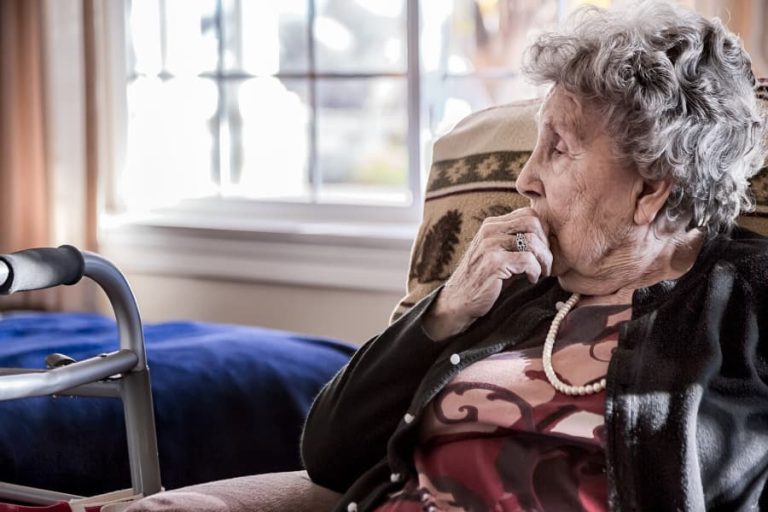Sundowning is a phenomenon when people with cognitive disorders experience worsening symptoms after sundown. It’s beneficial for caregivers to be informed about what sundowning is and whether it always indicates Dementia. At Fox Trail Memory Care Living, we provide Dementia care and resources to residents in North and Central New Jersey. Here, we discuss what sundowning is and whether it’s always a sign of Dementia.
What Is Sundowning? Exploring Signs and Symptoms
Sundowning refers to a set of behaviors that occur in the late afternoon and evening in people with cognitive impairments like Dementia and Alzheimer’s disease. These behaviors can include increased irritation, pacing at night, and worsening nightmares. According to studies, more than 20% of people with Dementia suffer from sundowning at some point after their diagnosis.
Symptoms may vary from person to person depending on the progression of their condition, but they include:
- Feeling confused or disoriented
- Pacing restlessly
- Rocking when seated
- Wandering
- Acting violent or paranoid
- Following their caregiver wherever they go
- Crying
- Inability to sleep or insomnia
- Yelling
- Feeling uneasy or nervous
Dementia often causes disruptive changes to the memory part of the brain, so your loved one may become more restless at night. Therefore, the evenings should be closely followed with relaxation techniques to calm down those with Dementia. It’s also good to keep a regular routine with sleep. Caregivers can help with sundowning by providing a calm and safe environment for their loved ones in the evenings.
Is Sundowning Always Connected to Dementia?
While sundowning is often associated with Dementia, it’s also a behavior that can be affected by other mood disorders and cognitive impairments. Sundowning can cause sadness, anxiety, fear, and agitation in people diagnosed with these conditions. Disrupted circadian rhythms, or sleep-wake cycles, can often worsen these symptoms. Other causes of sundowning may include:
- Certain medications
- Depression and anxiety
- Bipolar disorder
- Sleep disorders
Since these factors can also contribute to sundowning, it is not always an indicator of Dementia or Alzheimer’s disease. However, it’s important to speak with a physician if a loved one is experiencing signs of sundowning to determine its cause.
Ways to Overcome Sundowning
Sundowning is common in people with cognitive impairments or other conditions. Fortunately, there are many techniques to help your loved one through episodes of sundowning. Some ways to overcome sundowning include:
- Adjusting the environment: As the evening commences, consider the lighting and noise level around your loved one. Ensure that lighting isn’t too bright and excess noise is reduced to prevent overstimulation.
- Establishing a routine: Sticking to a regular schedule with predictable wake-up and bedtimes can help decrease anxiety and confusion. It’s also beneficial to avoid activities in the late afternoon and evening to keep your loved one comfortable and not upset their circadian rhythm.
- Winding down before bed: Help your loved one relax before bed by reading to them, working on a puzzle, or watching their favorite show. Essential oils in scents like jasmine, lavender, and chamomile are also helpful for promoting calmness and relaxation.
- Making lifestyle changes: Making sure the individual gets regular sleep, eats a healthy diet, stays hydrated, and does light exercise can help them maintain a consistent sleep pattern and lessen sundowning symptoms. Decreasing heavy caffeine intake can also help your loved one cope with sundowning symptoms.
- Taking medications: Taking melatonin before bed can help manage sundowning symptoms and soothe those with Dementia before bed.
Other treatments may be available for sundowning, such as light and music therapy. Keeping familiar objects close by can also help comfort your loved one, especially before bed or as the afternoon hits. Creating that sense of security before bedtime can help your loved one feel relaxed. For more information about managing sundowning, ask your loved one’s doctor or their care team.
Explore How Fox Trail Memory Care Living Can Help with Sundowning
Sundowning is often faced by individuals with Dementia and their caregivers. Fortunately, Fox Trail Memory Care Living is here to help with supportive and comfortable memory care communities. We provide our residents with Dementia or other cognitive disorders with resources and support, such as an education center and memory care products.
Our HOPE program provides 24/7 medication management and top-tier medical care by certified professionals to keep residents in the best shape possible. Amenities like walking paths, homemade meals, and community activities can help stimulate residents and keep them in a consistent routine to help with sundowning symptoms.
To learn more about what sundowning is and how our Dementia care in North and Central New Jersey can help with it, contact us or schedule a tour today.

